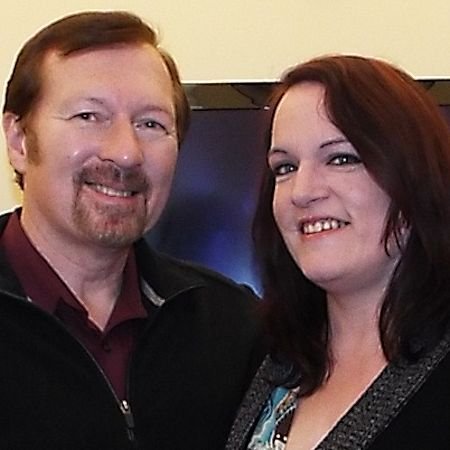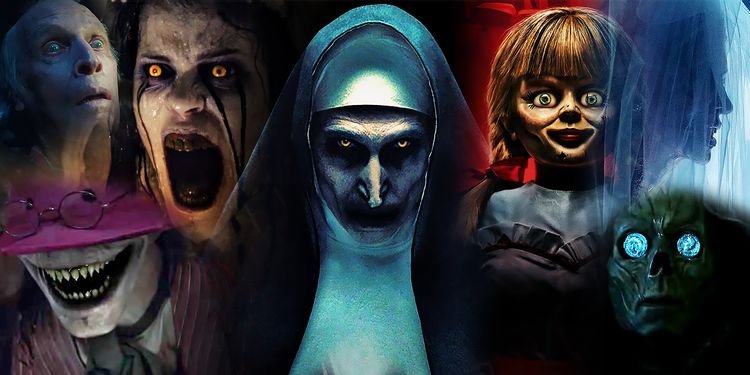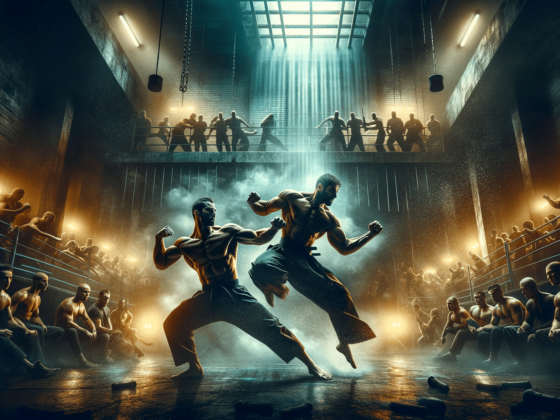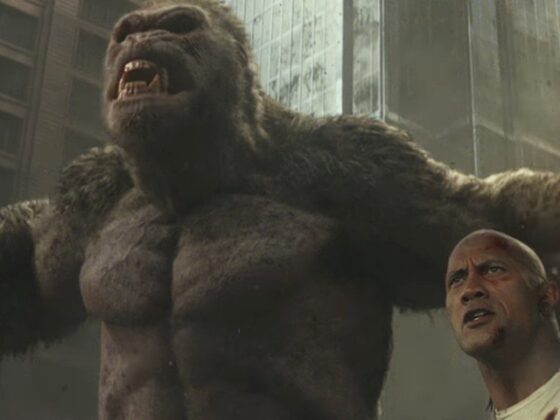Given that this is the Halloween season and demons, ghosts, and creepy things of all sorts are considered to be the stock and trade of the holiday, it stands to reason that bringing a bit of fact to the fiction would be worth the effort. It’s especially fun since all too often it’s seen that people tend to believe what they see in the movies based on stories, rumors, gossip, and all the other garbage that Hollywood forces people to sift through with their mix and match style that kind of screws up the origin of how things truly came to be. Demonology is just one among many studies/subjects that those in show business latched onto and attempted to suck dry at one time, but the fun part about this is that while Hollywood was busy building up rubber monsters and perverting legends and myths, there are still those that are adamant about telling that little thing known as the truth, though with demonology it’s kind of tough to say that anything is true or false since it stems from a theological standpoint.

In other words, it’s hard to say that Hollywood is full of bs simply because there are times when things like demons and spirits are used as scapegoats because people don’t want to own up to the things they do. But in terms of Halloween and horror movies, demonology is something that is rather helpful, so long as people are willing to follow the actual studies rather than skim the notes and shoot from the hip.
What is a Demonologist?

Demonology is essentially the study of demons and the belief system that surrounds them. Theologically speaking it relates to supernatural beings that are more powerful than humans but still far beneath gods within many different mythologies. Unlike its name implies however it does not focus solely on malevolent beings the kind of which are depicted in film and on television, but also with benevolent beings that have few if any worshippers and are as such not very well known. To the thinking many people, demons are dark, malignant spirits that hearken to a much darker lifestyle and are meant to torment the living. While this is might be in part quite accurate, it is not the only focus of a demonologist.
What does a Demonologist do?

The word “demon” at one time meant a benevolent being, but its translation to English somehow switched that meaning to something far darker and less kind. When regarded as spirits, demons are often thought of as discarnate souls that have never had a body of their own. This however depends on the mythos of each culture in which demons appear. If one was to look at the myths and legends surrounding demons in Africa as opposed to America they might find that one culture believes in demons as spiritual beings without a body of their own, whereas the popular myth of the day in America is that demons can either possess a body or are possessed of their own grotesque, unholy form. Whatever culture you go to demons are more often than not seen as rather dark beings, no matter the origin of their label. The positive or even neutral nature they were given long ago has been eclipsed thanks to the fear that humans hold for the unknown, which shouldn’t be too surprising.
Demonology, though considered a pseudoscience by many, has been a prevalent influence throughout many cultures. There have been a great many societies that have believed in the existence of spirits both benevolent and malignant, and demons have at times been an easy target for the woes of mankind when things begin to go wrong.
What a Demonologist DOESN’T do.

Most people would assume that a demonologist is one who summons demons or perhaps banishes them much as you would see in “The Exorcist”. Unfortunately, this is not entirely accurate, as a demonologist is not a position that many within the Christian faith would seek to cling to. Not only is it a means by which to endanger yourself and others, but it is also a calling to which few are drawn, and one which relies heavily upon the presence of God and all His blessings to stay safe, and sane. Demons are reputed to be very real, though also very selective in who they choose to torment. The role of a demonologist is to study and understand those spirits who mean to bring harm and torment to others. They are not always priests, but they are almost always Christians who have fully accepted God into their lives for protection. The glitz and glamour of demonologists relying heavily on the holy bible as seen in the movies are more for show than any historical accuracy when it comes to the study of demonology. A few things they don’t do include:
- They don’t visit a house without equipment or a prepared state of mind. Get it out of your head that they’re going to walk into a supposedly supernatural case without doing any background research on the site, the people involved, etc. That’s like walking into a war zone to ‘get a feel’ for the enemy without any weapons on hand.
- They don’t stand around and chant or read from some archaic book that’s been collecting dust bunnies for the last several years until someone needs it. They’re there to study the disturbance, not take action against it, especially since this could get them in a world of trouble.
- This isn’t a movie, so don’t expect shadowy figures, bloody visions, or any of that noise. Spirits and malevolent beings might be real, but their grip on the real world is more of a psychological one than anything.
What’s the difference between a Demonologist and a Ghost Hunter?

Many people would lump a demonologist, or paranormal investigator as many of them are known, into the same group as a ghost hunter. This is a common misconception that tends to generalize the far more intricate life of a demonologist. While the ghost hunter is out seeking proof positive of spirits that exist in haunted houses, forests, and various other regions, the demonologist investigates the possibility that a spirit exists in such locations. Ghost hunters are continually on the prowl to find one ghost after another, thinking only to find their “prey” as the term “hunter” would imply. Once they have found what they are seeking they tend to move on, the thrill of finding ghosts spurring them ever onward.
Demonologists on the other hand are labeled as investigators, as in they seek out mentions and hints of spirits but do not actively engage unless there is no other choice. The life of a demonologist is said to be quite lonely as they devote much of their time and effort to their studies and tend to eschew any other type of relationship with others. Demons are said to inhabit any living specimen they can, and the presence of loved ones, even pets, can grant too much of a weakness to any living soul should a demon find it necessary to torment them. Demonologists are quite simply those who study the paranormal and, if necessary, take note of how it affects humanity and employ those who are trained in such arts to keep any who are affected from harm.

It’s easy to laugh from a distance.
Demons are defined by the Western world and many other cultures as malevolent, harmful spirits that are bent on destroying the race of mankind. They are said to be devious, deceitful, and capable of outthinking and outwitting even the smartest human alive, and as such are considered extremely dangerous. Those who have risked their lives and their sanity to divine the nature of demons have often placed themselves on the front lines of the unseen war that rages beyond the reckoning of human beings, watching and observing in order to better understand what is not seen. Demonologists are not the holy water-packing religious warriors from the movies but are still very aware of the spiritual realm that exists just beyond the human sphere.
I get it, people want to believe in something that’s cooler and reinforces their own interests.

Anytime the word ‘demon’ comes up it’s easy to understand that people want to see a movie or a TV show or even a bit of literature lean heavily into the familiar trope of demons being these super-aggressive and diabolical creatures that are fully intent on swallowing our souls and inhabiting a human body to do whatever nasty crap they can think of. The truth about demons and demonology is far more mundane than all that since the study of demons is something that doesn’t carry the same excitement that Hollywood can deliver. But to be fair, it’s likely that most people wouldn’t want to contemplate what might happen if they really did come face to face with a malevolent entity.








